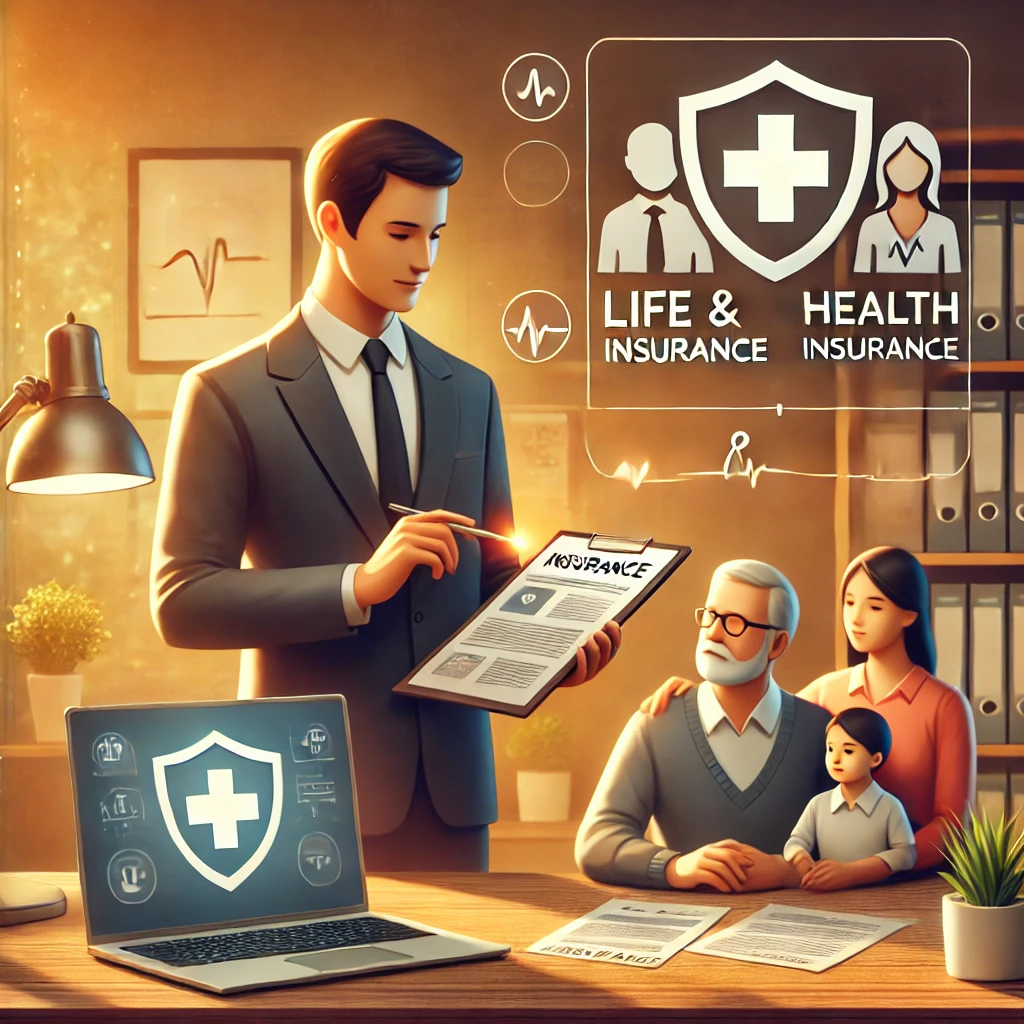
In today’s unpredictable world, having the right insurance coverage is essential. Whether it’s life insurance for your family’s peace of mind, auto insurance to protect your vehicle, or health insurance to manage medical costs, smart insurance decisions can save you thousands of dollars.
In this comprehensive guide, we’ll break down the types of insurance you need, how to compare policies, and the best tips to lower your premiums — all while boosting your financial security.
🛡️ What Is Insurance and Why Does It Matter?
Insurance is a financial safety net that protects you against unexpected expenses. You pay a monthly or annual premium to an insurer, and in return, they cover costs related to specific losses, like a car accident, hospital stay, or death.
Without insurance, a single medical emergency or car crash could put you into deep debt. That’s why insurance is one of the smartest financial decisions you can make — if you choose the right plan.
🔍 Types of Insurance Everyone Should Consider
1. Life Insurance
Life insurance pays out a lump sum to your beneficiaries if you pass away. It helps your loved ones cover debts, funeral costs, or maintain their standard of living.
🧾 Types of Life Insurance:
- Term Life Insurance: Affordable coverage for a set period (e.g., 10, 20, 30 years)
- Whole Life Insurance: Lifetime coverage with a savings component
- Universal Life Insurance: Flexible premiums and investment options
✅ Best for: Parents, homeowners, or anyone with financial dependents.
2. Auto Insurance
Auto insurance protects your vehicle and liability in case of accidents, theft, or damage.
🚘 Common Coverage Options:
- Liability Insurance: Covers damages to others if you’re at fault
- Collision Insurance: Pays for damage to your car
- Comprehensive Insurance: Covers non-collision damage (e.g., theft, fire, vandalism)
- Uninsured Motorist: Covers you if hit by someone without insurance
✅ Required by law in most U.S. states.
3. Health Insurance
Health insurance covers medical expenses such as doctor visits, hospital stays, surgeries, and prescriptions. In 2025, it’s more crucial than ever due to rising healthcare costs.
🩺 Key Plan Types:
- HMO (Health Maintenance Organization) – Lower cost, requires referrals
- PPO (Preferred Provider Organization) – Higher flexibility and network access
- High-Deductible Health Plans (HDHP) – Lower premiums, compatible with HSAs
✅ Essential for everyone — especially families, freelancers, and older adults.
📊 How to Compare Insurance Policies
Choosing the right policy can be overwhelming. Use insurance comparison tools to evaluate:
- Premiums (monthly cost)
- Deductibles (amount you pay before coverage starts)
- Coverage limits (maximum payout)
- Exclusions (what’s not covered)
- Customer reviews and claims ratings
🛠 Recommended comparison sites:
- Policygenius
- The Zebra
- Compare.com
- Insure.com
💡 Tip: Don’t just go with the cheapest option — balance cost and coverage for your real needs.
💸 Tips to Save on Insurance Premiums
Insurance doesn’t have to break the bank. Here’s how to lower your costs:
1. Bundle Policies
Most insurers offer multi-policy discounts when you combine auto + home or auto + life insurance.
2. Raise Your Deductible
Increasing your deductible can lower your premium — just make sure you can afford the out-of-pocket expense in an emergency.
3. Improve Your Credit Score
In many states, insurers use credit history to determine premiums. Better credit = lower costs.
4. Shop Around Annually
Don’t stay loyal out of habit. Compare quotes each year to get the best deal.
5. Use Telemetrics or Wellness Programs
Some auto insurers offer discounts if you install a driving tracker. Similarly, health insurers may reward healthy behaviors via fitness apps or preventive care participation.
🔐 The Role of Insurance in Financial Planning
A strong financial plan includes risk management, and insurance is the foundation of that. Life insurance protects your income, health insurance shields your savings from medical debt, and auto insurance prevents legal and repair expenses.
Without adequate coverage, one accident or diagnosis could erase years of hard work.
📱 Best Tools and Apps for Managing Insurance in 2025
Modern tech has made insurance easier than ever to manage. Here are the top-rated apps and platforms:
- Lemonade – Fast claims and affordable coverage for renters, life, and pet insurance
- GEICO / Progressive / State Farm – All-in-one app access for auto & home
- Policygenius – Compare life, disability, and home policies in minutes
- Oscar / Zocdoc – Health insurance plan management with doctor search
✅ Frequently Asked Questions (FAQs)
Q: Do I need life insurance if I’m single?
Yes, especially if you have debts or want to cover funeral expenses.
Q: How much auto insurance do I really need?
It depends on your state laws and the value of your car — but full coverage is often worth the extra cost for peace of mind.
Q: Is employer-provided health insurance enough?
Not always. Review what’s covered and consider supplemental plans if needed.
Q: Can I deduct insurance premiums on my taxes?
Health insurance may be deductible if you’re self-employed. Consult a tax advisor for specifics.
🔚 Final Thoughts: Protect Your Future with Smart Insurance Choices
Insurance is not an expense — it’s an investment in your security. Choosing the right life, auto, or health insurance policy ensures that you’re protected when life throws the unexpected your way.
Start by evaluating your needs, comparing multiple providers, and using online tools to make informed decisions. And remember — the cheapest policy isn’t always the best.